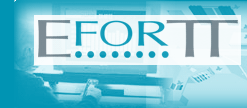


PROJECT NO : 217787
CORDIS SiS:
http://cordis.europa.eu/
fp7/sis/
Europa SiS:
http://ec.europa.eu/
research /science-society/
The views expressed in this website are the sole responsibility of the author and do not necessarily reflect the views of the European Commission.
PROJECT WORKPACKAGES
|
ACTIVITY |
LEAD PARTNER |
WP1 |
Management Technical Co-ordination : establish detailed project plan ; co-coordinate the activity of work package leaders; organise Steering Committee meetings and establish Local Advisory Groups; ensure the appropriate standards of project management and quality assurance; prepare contractual periodic management reports (18 months); set up website, produce project publicity Administrative Co-ordination :organise communication and progress reporting between the Consortium and the Commission ; ensure clear financial accounting and budget reporting processes ; submit deliverables to the European Commission; monitor project activities with regards to ethical and gender issues Quality assurance: monitor the proper maintenance of project records ; ensure that requirements are met in a cost effective and traceable manner |
Lancaster
|
WP2 |
Ethnographies of care interventions: Ethnographic fieldwork, based on sustained observation as well as interviewing, conducted in selected projects and locations. The research started with a period of observation of remote care practice and relationships which includes the locations both of care recipient's home and the workplace(s) of the formal care provider. Interviews carried out with stakeholders (care recipients, their family/informal carers and next-of-kin, care providers, managers and administrative bodies responsible for care services to older people, providers and technical support) to accompany the observations. |
Amsterdam
|
WP3 |
Citizens' panels In 2003 the President of the UK General Medical Council, Graeme Catto, called for a ‘public debate' around telecare to ensure that decisions about development and implementation could be made with the support of citizens. He proposed regional forums where the public might debate emerging issues and concerns. Following this, a small scale pilot study carried out in the UK showed that citizens had concerns that ethical, social, clinical and technical considerations should be balanced together in decisions about new systems (Mort & Finch 2005). The results show how a series of informed debates held regionally across Europe would yield important insights and guidance for both practitioners and policymakers, with the added cross-cultural dimension that could be gained at this level. The proposed project allows for the creation of a deliberative research axis as one way to address this deficit. |
Lancaster
|
WP4 |
Cross-cutting thematic analysis Field notes, interview data, citizens' panels transcripts and documentary data will be analysed using an iterative, interpretive and grounded theory approach in which data are categorised using concepts proposed and agreed at ‘ a data clinic' held between the partners. This will be informed by theories about care and care relationships as well as from STS studies of the material and technological conditions for social practices (including medical /health care practices), but then modified by insights from the data. Categorisation, coding and analysis of materials will all be subject to collective discussions in the project group (WP 4). |
Oslo
|
WP5 |
International participatory conference September 13th - 14th 2010 An international participatory conference around ethical dimensions of new telecare technology development . |
Barcelona
|
WP6 |
We will produce a final report that synthesises findings from all work packages and draws on the outcomes of WP4 and the discussions and responses resulting from WP5. The report will be written in an accessible way, in English, and will make project findings available to a wide range of users, including policy makers at the EU level, academics, user/patient groups and industry. |
Lancaster
|
WP7 |
Publications and dissemination The project will ensure publication of project results in quality journals across Europe (in all project languages) and globally. |
Amsterdam Oslo |
Tel: +44 (0) 1524 594077 -- Fax: +44 (0) 1524 594256